On July 1, Russia marks Kamchatka Territory Day. The peninsula, located in the country’s Far East, is washed by the Bering Sea in the east and by the Okhotsk Sea in the west. This marvelous piece of land has an outstanding number of interesting peculiarities.
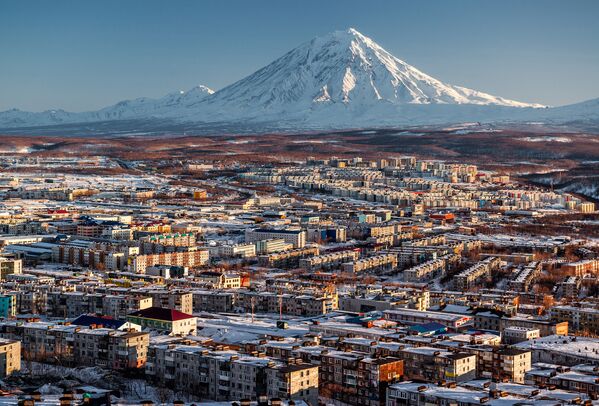
Petropavlovsk-Kamchatsky is the administrative center of the Territory. It was established in 1740 and its name was derived from “Saint Peter, the Apostle” and “Saint Paul the Apostle.”
Above: Petropavlovsk-Kamchatsky cityscape and Koryaksky volcano at sunrise.
Above: Petropavlovsk-Kamchatsky cityscape and Koryaksky volcano at sunrise.
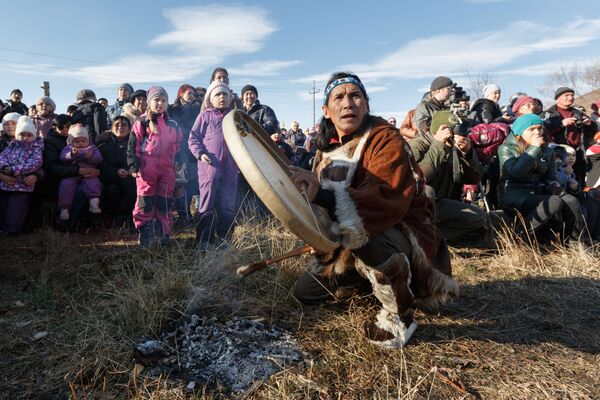
2/14
© Sputnik / Alexandr Piragis
The peninsula’s indigenous peoples are Itelmes, the Koryaks, the Chukchi, and Evens.
Above: A dancer and guests during during the Koryak ceremonial holiday "Khololo" in Petropavlovsk-Kamchatsky.
Above: A dancer and guests during during the Koryak ceremonial holiday "Khololo" in Petropavlovsk-Kamchatsky.
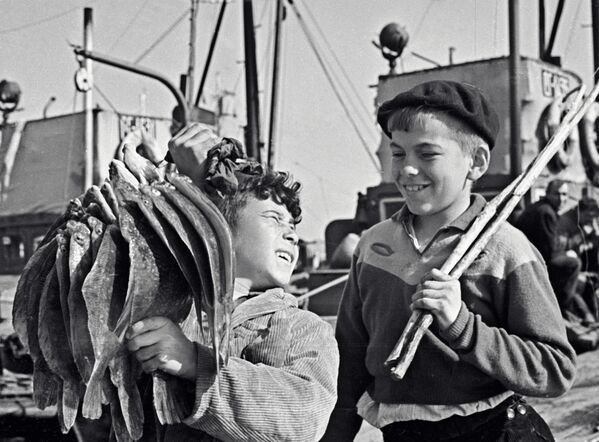
3/14
© Sputnik / F. Gabdulin
Kamchatka’s nature is pristine. Some plants are endemic. Its rivers and lakes are rich in fish.
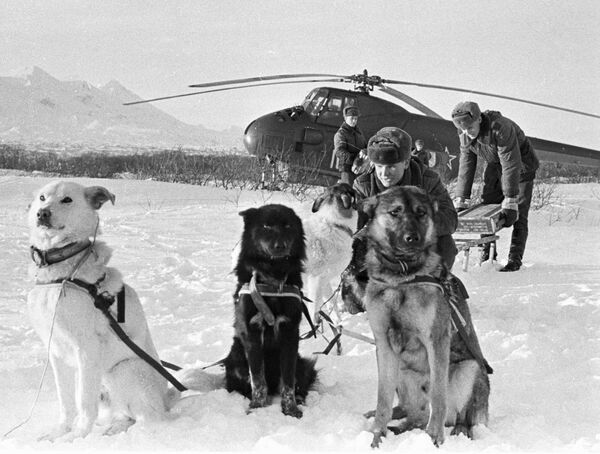
4/14
© Sputnik / Suhodolskiy
The local fauna comprises 500 species of fish, 300 species of birds and over 90 species of mammals.
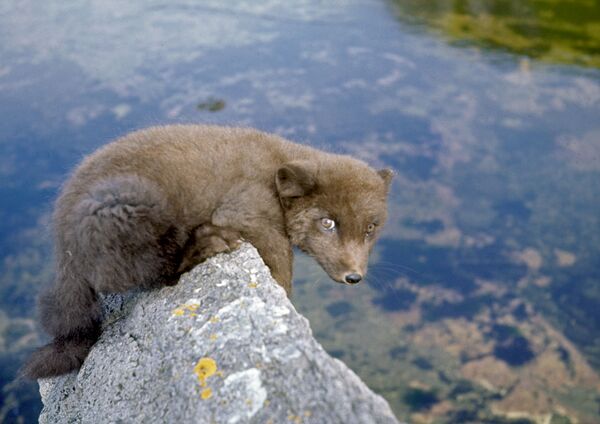
5/14
© Sputnik / F. Chelnokov
There are so many brown bears there that practically every tourist can see them in their natural habitat.
Above: a cub of the blue Arctic fox. The Commander Islands.
Above: a cub of the blue Arctic fox. The Commander Islands.
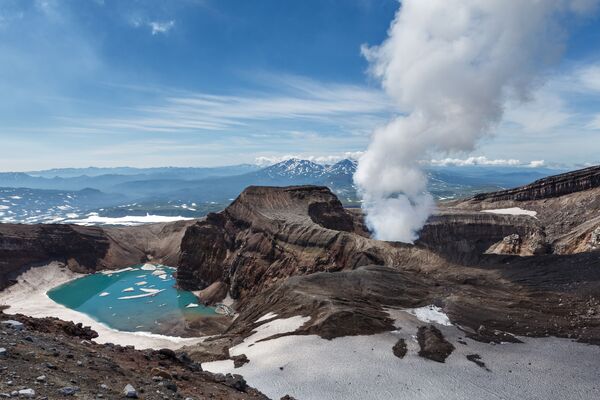
6/14
© Sputnik / Alexandr Piragis
Kamchatka is famous for its volcanoes. They are even depicted on its coats of arms. There are between 140 and 300 volcanoes, 29 are active. Some poetically call them “stone torches.”
Above: Volcano Gorely.
Above: Volcano Gorely.
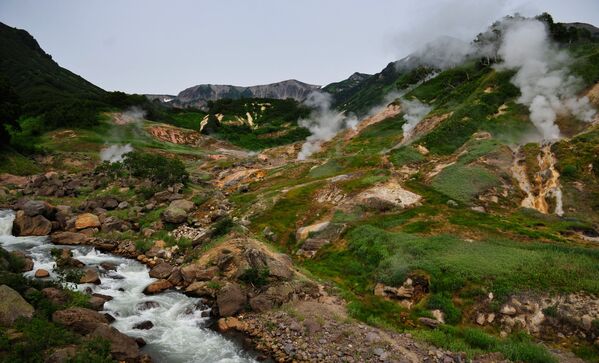
7/14
© Sputnik / Alexey Kudenko
Kronotsky Nature Reserve has the Valley of Geysers, the sole geyser field in Eurasia, and the Kronotsky Lake, a 140-meter-deep body of water in the form of an equilateral triangle.
Above: the Valley of Geysers. Left: the Geizernaya River.
Above: the Valley of Geysers. Left: the Geizernaya River.
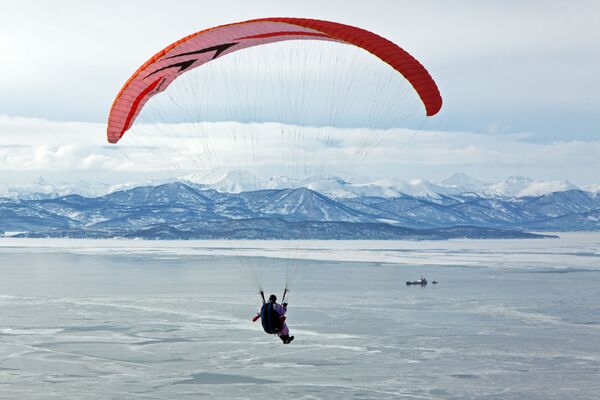
8/14
© Sputnik / Alexandr Piragis
Kamchatka is the perfect place for activities and sports. Like a magnet, it attracts mountain climbers, as well as rafting, skiing and paragliding enthusiasts.
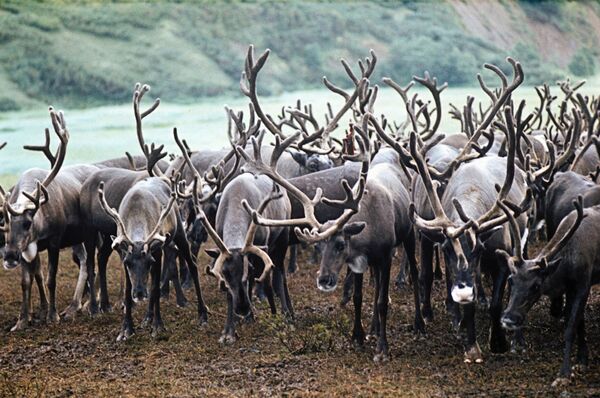
9/14
© Sputnik / Vitaliy Saveliev
The unique nature is being protected in three nature reserves, five natural parks, and 24 wildlife sanctuaries. This provides a brilliant opportunity for eco-tourism.
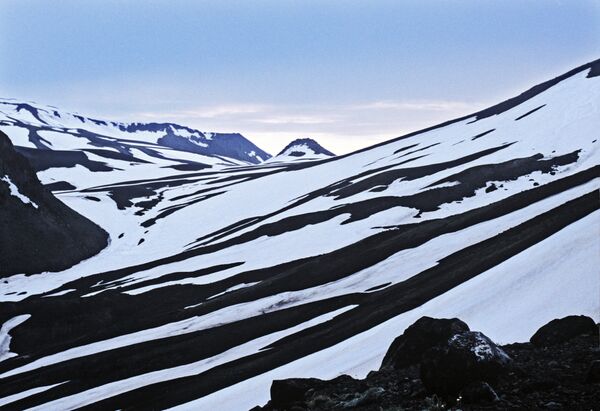
10/14
© Sputnik / Ewgeniy Neskoromniy
Koryaksky volcano on the Kamchatka Peninsula.
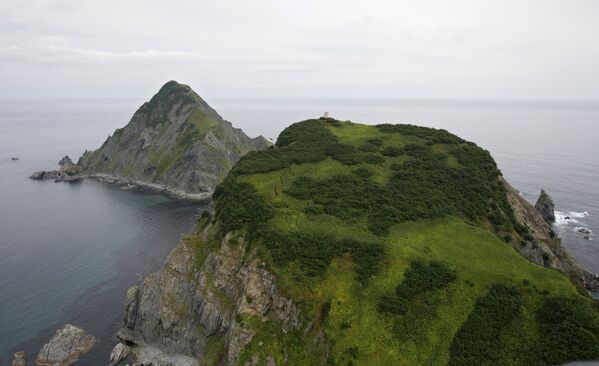
11/14
© Sputnik / Alexei Druzhinin
Kamchatka is a rare spot on Earth displaying the unique phenomenon of gigantism in plants. Grass here grows as high as four meters! A lot of plants survived glaciation.
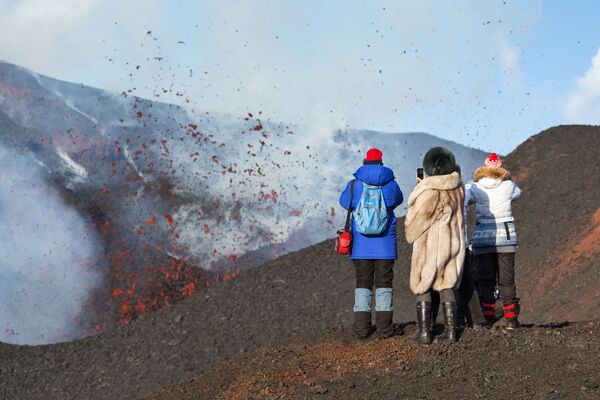
12/14
© Sputnik / Alexandr Piragis
The population of the Kamchatka Territory stands slightly over 300,000 people.
Above: Women photograph a side breakthrough eruption of Plosky Tolbachik volcano in Kamchatka.
Above: Women photograph a side breakthrough eruption of Plosky Tolbachik volcano in Kamchatka.
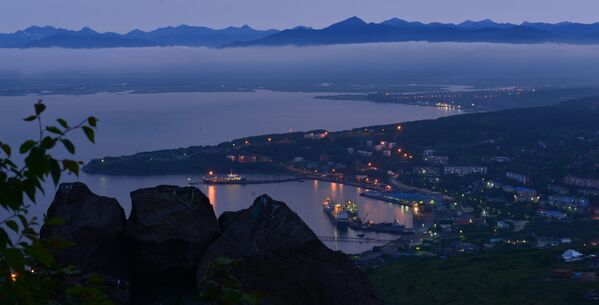
13/14
© Sputnik / Alexey Kudenko
Kamchatka is bigger than Britain, Italy and Sweden.
Above: Petropavlovsk-Kamchatsky as seen from Mishennaya mountain.
Above: Petropavlovsk-Kamchatsky as seen from Mishennaya mountain.
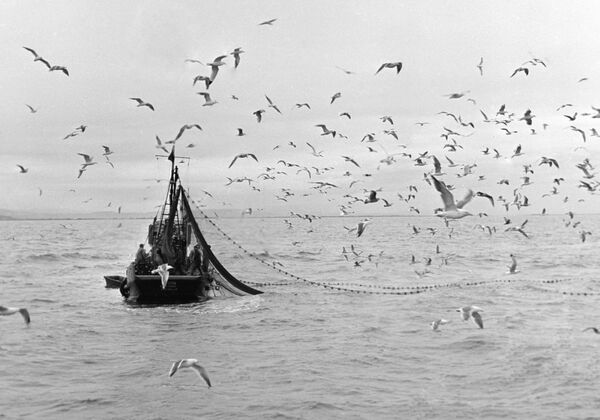
14/14
© Sputnik / Lev Garkavyi
All transportation is carried out by planes, helicopters, vessels and cars. There are no railroads on the peninsula.
Above: a fishing seiner in the Olyutorsky Bay.
Above: a fishing seiner in the Olyutorsky Bay.

